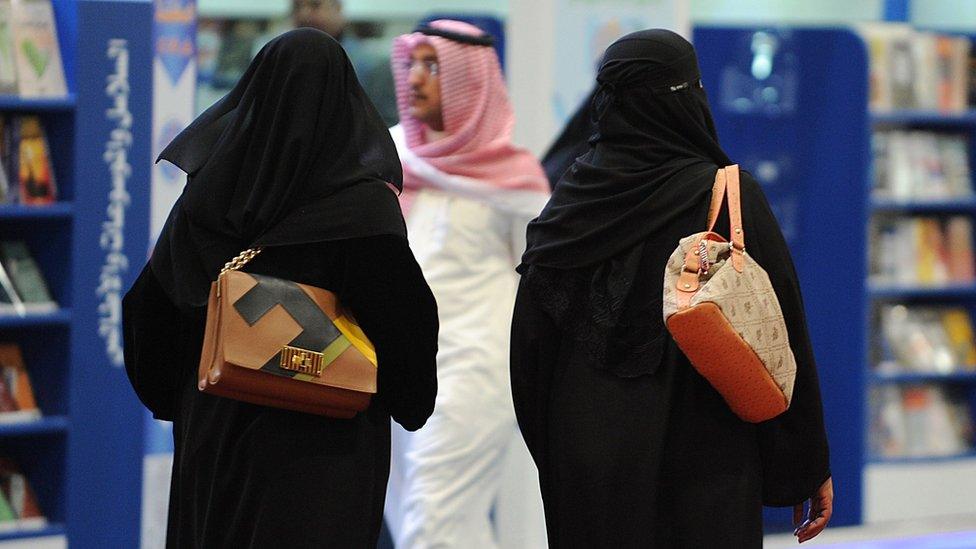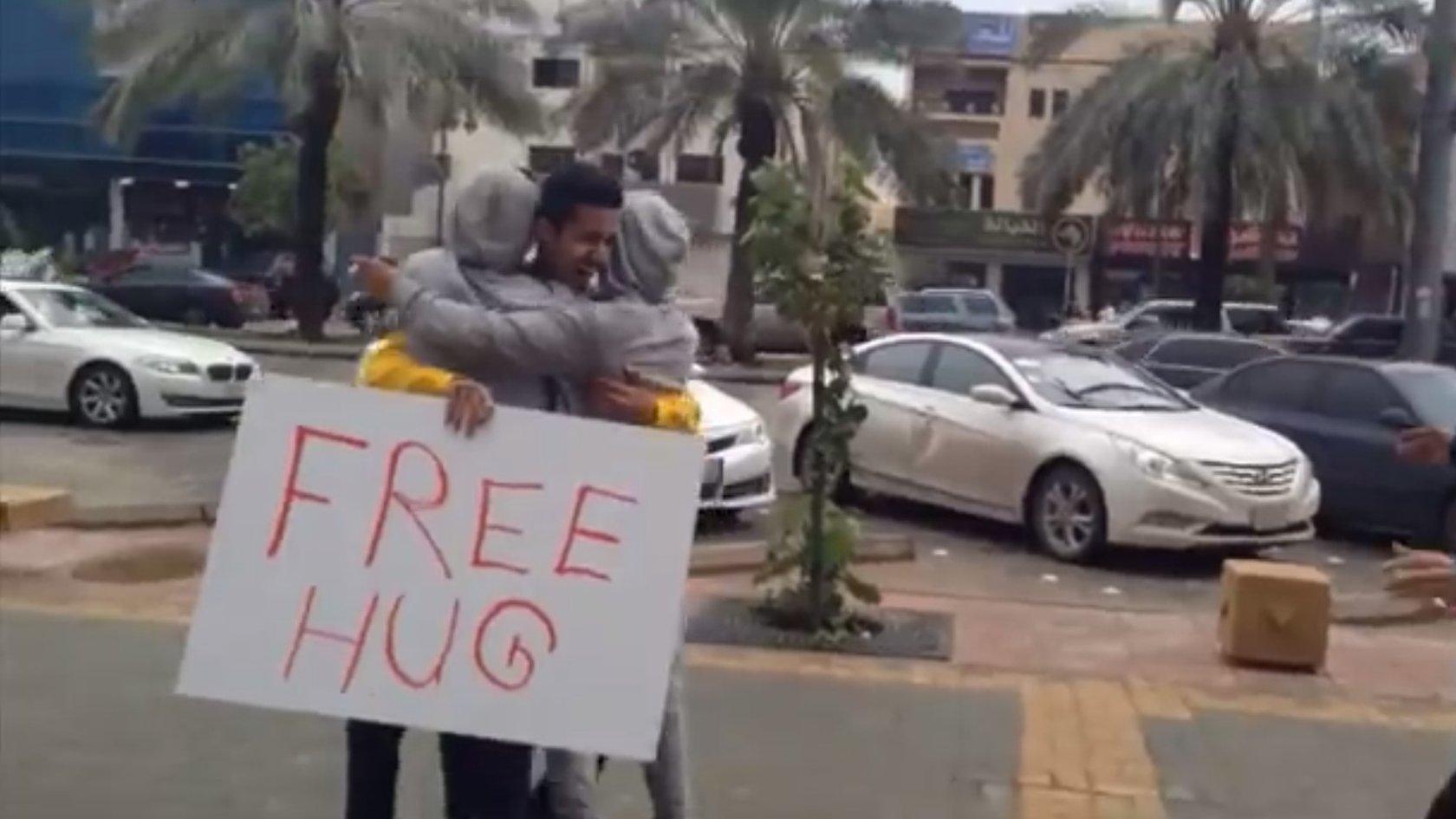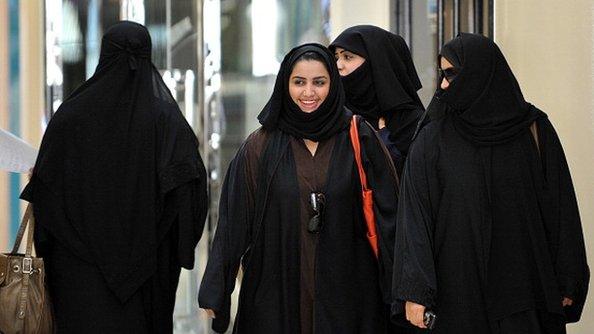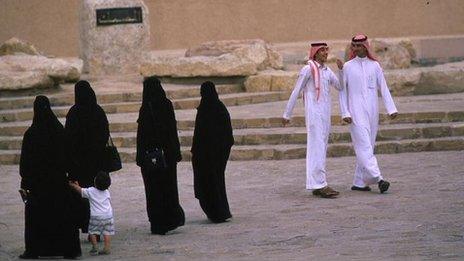Saudi Arabia's religious police ordered to be 'gentle'
- Published

The religious police enforce strict segregation of the sexes and other social restrictions
The Saudi authorities have moved to curb the powers of the notorious religious police, or "mutawa".
Members of the Committee for the Promotion of Virtue and the Prevention of Vice will no longer be permitted to chase suspects or arrest them.
They must instead report observations to security forces personnel.
Religious police officers, who roam the streets enforcing strict standards of social behaviour, are frequently accused of abusing their powers.
Several were reportedly arrested in February for allegedly assaulting, external (YouTube video) a young woman outside a shopping centre in the capital, Riyadh.
In 2013, four officers were accused of causing a fatal car crash when they pursued two brothers who had refused to turn the radio down in their vehicle. However, a court subsequently acquitted them.
'Gentle and humane'
The new law governing the religious police was approved by the cabinet on Monday, but was not published by the official Saudi Press Agency until Tuesday.
Officers will continue to help enforce strict segregation of the sexes, an absolute prohibition of the sale and consumption of alcohol, a ban on women driving and many other social restrictions.
But the new law stipulates that their mission has been amended to "carrying out the duty of promoting virtue and preventing vice in a gentle and humane way, after the model set in this regard by the Prophet [Muhammad] and his rightful successors".
They will also be obliged to display clear identification, showing their names, posts, jurisdictions and official working hours.
The law stipulates that officers will no longer be permitted to pursue suspects, arrest them or ask for identification - only report suspicious behaviour to regular police and anti-drug units, who will decide whether to take the matter further.
- Published5 March 2016

- Published13 October 2015

- Published4 February 2014

- Published21 November 2013

- Published15 May 2013

- Published18 October 2012

- Published3 October 2012

- Published14 July 2012
